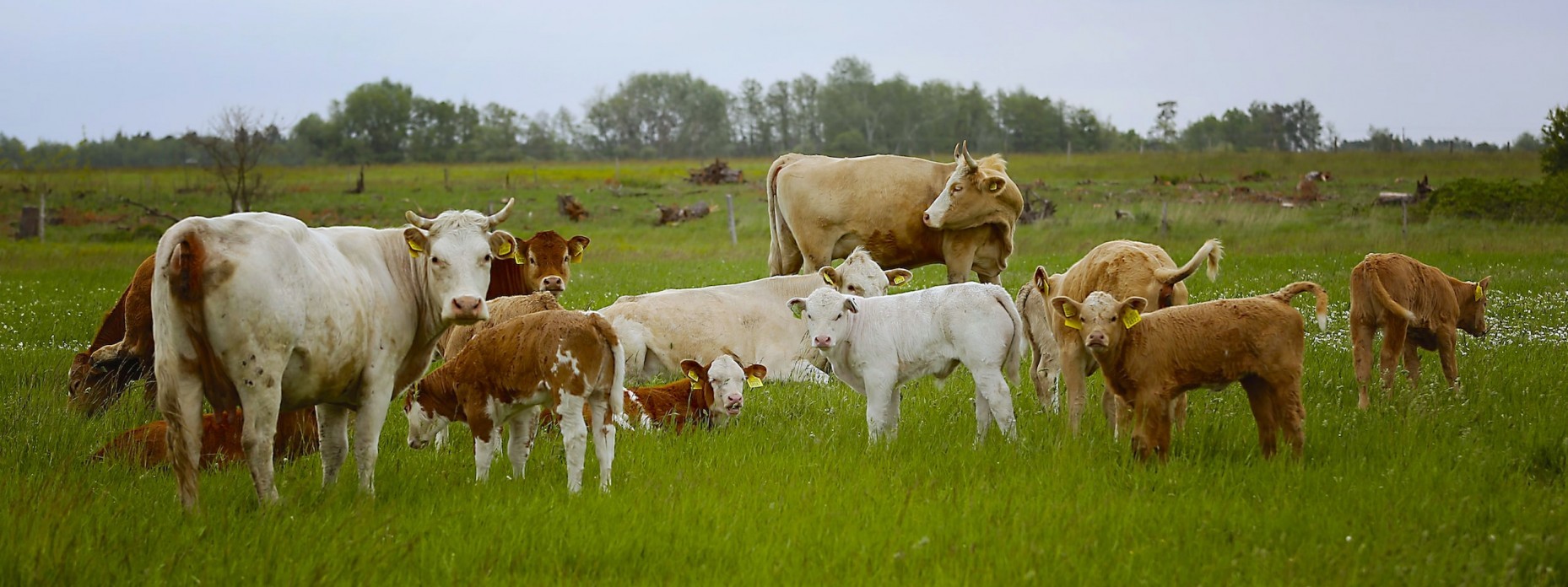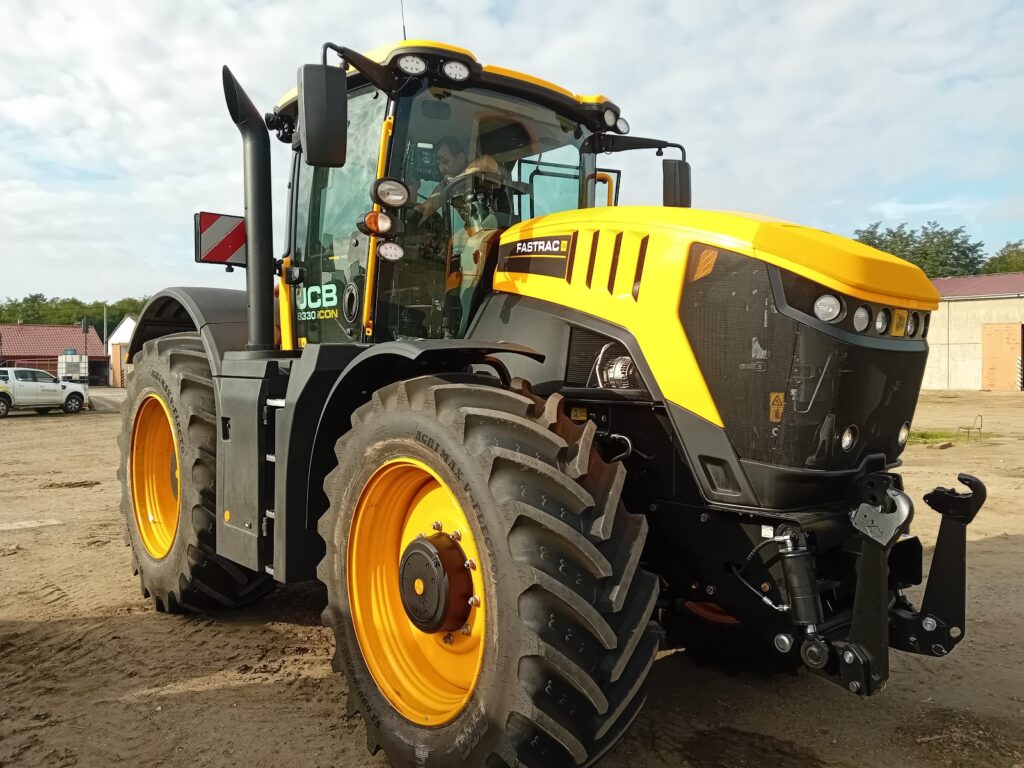I am seeing a rising tide of opposition to big farmers in the media and on social media. All the big ones - regardless of whether they are honest farmers or pseudo-businessmen - have been lumped together and labelled as damaging to this country. Without any consideration of the work they do or what they leave behind for future generations. Here are a few facts about why the big vs. small farmers issue is used more for power struggles and has nothing to do with decent business, and why the big ones are not a scourge for Slovakia, but rather a necessity.
FACT 1: WE MAKE A SIGNIFICANT AND CONTINUOUS CONTRIBUTION TO THE ECONOMY
According to the available data from PPA, there are more than 18 thousand farms in Slovakia. Of these, one thousand are those farming more than 500 hectares of land, which makes it possible to classify them as large agricultural companies. With such an area, it is likely that they also employ a larger number of employees, thus contributing a different amount to state payments than smaller companies.
When I look at our company - Sanagro brings together 11 farms and manages about 20 thousand hectares of land, which is about 2 percent of all agricultural land in Slovakia. We employ 280 people on a permanent basis and we pay our levies properly to the state.
FACT NO. 2: WE DON'T FIGHT THE LITTLE ONES, WE SUPPORT THEM
The PPA data further shows that the number of large farms has remained virtually unchanged over 10 years. The small ones are therefore not threatened, as the largest representation in Slovakia are farms up to 15 hectares (about 15 thousand subjects) and their number - only in the last decade - has grown most significantly.
However, supporting the economy of a country is not only related to levies or taxes. I stick to the peasant fact - the basis of proper functioning is built on good neighbourly relations. This should apply not only at home, but also in business. A good relationship with small farmers or landowners is important to me and Sanagro. I admire them myself, I know they do their work with heart and, like any other businessman, I consider them an important part of the domestic economy.
That is why Sanagro also supports several small farmers. And I am proud of that. Why? Because we understand the difference in conditions.
If a company with its product reaches a certain stage of growth and wants to grow further, it needs to increase its production capacity, number of workers and experts, marketing, export and other considerable funds. The owner can rarely bear such a burden on his/her own, and he/she will not even be able to find a bank. Similar stories happen in the IT sphere, where investors finance and support technology start-ups with their experience or contacts. Because they believe in their idea, product and brand, which can grow. If the story is successful, both parties benefit in the end. And such or similar stories are also being written in the farming industry. But why is this considered bad in the agri sector while in IT such investors are titled as business angels?
Again, I will give an example for Sanagro: we give tens of thousands of euros a year to support a particular small farmer's product. We are able to provide him with smooth production, business support, pay experts who come up with ideas on how best to market the product or how to reduce costs - while maintaining the highest quality of the product - for example, on packaging.
That's how this product was able to earn its keep for a year. Before that year, it was bankrupt. Believe me, we wouldn't be doing this if we didn't believe in the quality of the product, the brand, and the people working on it.
FACT 3: WE CAN SHOP MORE EFFICIENTLY
Profitability in the Slovak agribusiness sector is very low and every entrepreneur who understands the economy naturally tries to minimize his costs. The advantage of large farms is that we can benefit from our scale and we can be more efficient in this respect than small farms. Buying fertilisers, seeds, machinery or other equipment in large volumes allows us to buy inputs at significantly better prices. The economies of scale are enormous and we therefore try to support other farmers by buying together.
FACT 4: WE ARE NOT ADDICTED TO THE USE OF CHEMISTRY
The claim that large farmers automatically use more chemistry is not true. As a country, we have the 5th lowest consumption of chemicals and fertilisers in the entire European Union. A specific feature of agriculture is the absolute dependence on two factors that we cannot control - the weather and wildlife. Both factors destroy crops differently within regions, i.e. they do not cause the same damage everywhere. However, our size allows us to 'breathe more freely' and we are not reliant on chemistry alone as a protector of production. Because we know that a shortfall in one farm's production will be 'held up' by the production of the other.
Among other things, Sanagro has one of the largest organic farms in Slovakia, which has not used any chemicals in production for 12 years. We are even considering an organic regime for other farms.
FACT 5: WE ARE INCREASING FOOD SOVEREIGNTY
I absolutely share the view of the farmer next door to our farm in Turiec: small farmers can enrich the supply, but they cannot supply the whole country. This fact is extremely important and should be recognised by everyone, including the state.
We do not have the conditions here for most farmers to take up vegetable and fruit growing - we are too small a country for that, with insufficient support from the state. I will explain why. On 15 hectares of land, only our group has started growing onions. We are ready to completely cover 2 of the 6 largest commercial chains in Slovakia with the harvest on this, one could say, meagre area. And we still have more to come. However, as a group we have 15 thousand hectares of land. And it would be similar for other vegetables. What does this imply? When every big farmer starts growing vegetables and fruits, there will be a huge surplus of them, which will depress the price and affect the quality. The only option will then be to export. However, because of low subsidies, the prices of Slovak vegetables cannot be as low as in the Netherlands, Poland, Spain or Italy, for example, where the agri-sector is heavily supported by the state. Our vegetables will not find a market either at home or abroad. And we will not be competitive again. Just as it was after Slovakia joined the European Union. Even then, the number of vegetable and fruit growers in our country fell significantly. What then, if farmers are up to it? It will ruin them. That is neither economically sensible nor realistically feasible. After all, no company produces products for which there is no demand and which it cannot sell. Everything has to make economic sense, and it does not matter whether it is a small or a large farmer.






